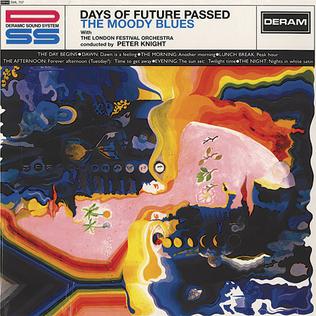Mitchell: Characteristics of late 1960’s album sets tone of burgeoning era

Fifty years ago, the long player format’s boundaries were being tested by virtually every group of the times, from established acts like The Who, with their pirate radio concept album, “The Who Sells Out,” The Byrds, with their psychedelic folk album, “Younger Than Yesterday,” and Aretha Franklin, with her heart-wrenching soul album, “I Never Loved A Man The Way I Love You,” to newcomers like Pink Floyd, with their trippy, kaleidoscopic debut, “The Piper At The Gates Of Dawn,” The Velvet Underground, with their grimy, undeniably New York debut, “The Velvet Underground & Nico,” and poet-turned-musician, Leonard Cohen, with his lyrically-driven debut, “Songs Of Leonard Cohen”, pieces of work in popular music were coming out of the woodwork, and for the first time, could be called legitimate, genuine art.
The Summer, the year, of love, was fueled by social and political change and reinvention. The cultural revolution sparked a creative revolution within the musical community and left artists with new powerful messages and an insurmountable amount of ideas to express in their music. The rulebook of conventional songwriting and instrumentation within popular music was being rewritten and 1967 was the creative peak of this international movement.
Within this flood of ingenuity, emerged an album with musical elements that longed for the simple, nostalgic constraints of early 20th century America, with its lush classical orchestral sweeps, but also looked out upon the horizon to combine elements of the past with ideals from the new, burgeoning era with its progressive pop sound and counterculture-influenced lyrics. On Nov. 11 1967, this album, “Days of Future Passed,” by The Moody Blues, was released.
The album always bursts with imagery, channeled through the vivacious arrangements of every single instrument across the board from track to track. The tempo and mood of the album is often dictated by the strings, which makes an appearance on every song, pushing and pulling you with every key change and bombastic crescendo, while the mellotron adds textures of grandeur to the epic, surreal, dreamlike layers already present within the melodies. The album’s strongest qualities, however, shine through in its ability to hold back. Whether it be in its commitment to the typical rock/pop song structure, like during the psychedelic drone of the first half of “Evening” (“The Sunset”), never straying too far from the song’s structure, while remaining engaging but still showcasing its experimental, immersive sound, or its deceivingly profound lyrics about life, like in “The Morning”, “Time seems to stand quite still, In a child’s world it always will,” summing up the sentimental value and essence of childhood innocence within a rhyme, this album just succeeds on so many levels. It has a little bit of everything the best music has to offer to fit your every mood. If you like expanding your musical horizons, give this album a listen. It will can turn a morning into a majestic thing.







